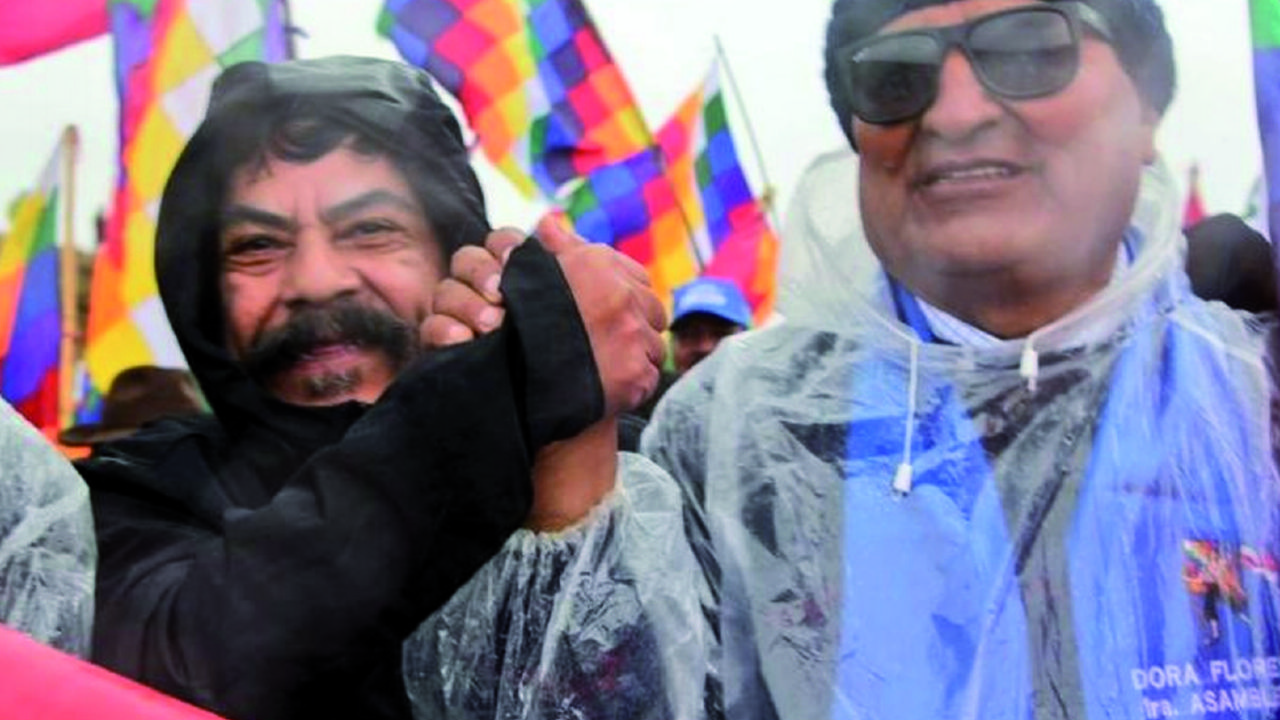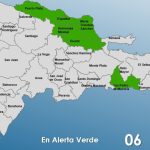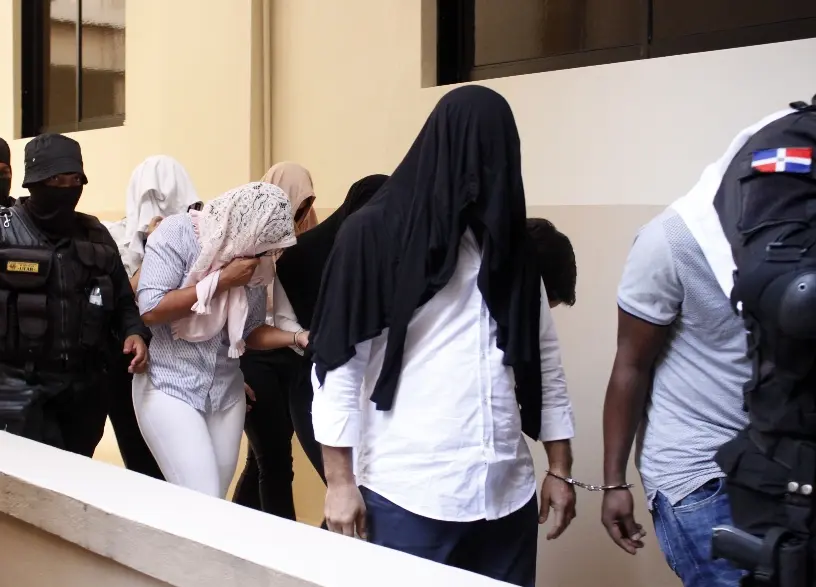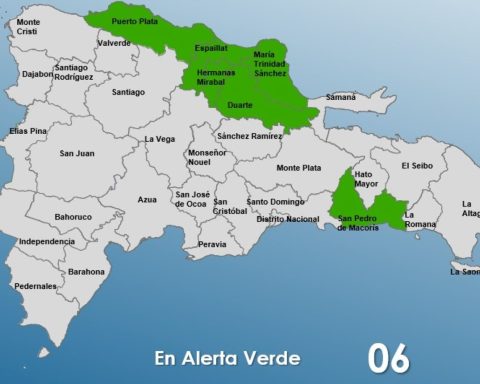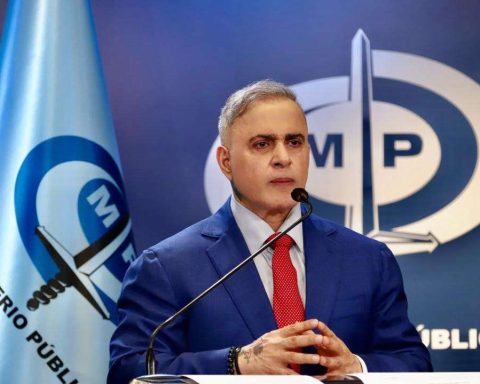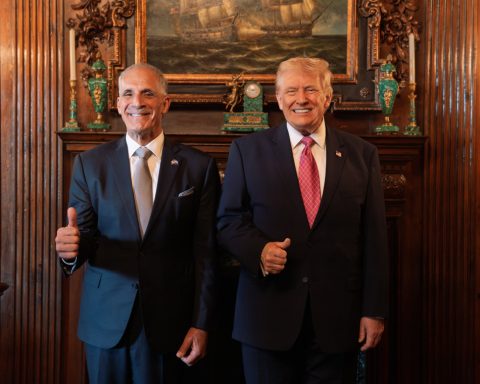Page Seven / La Paz
The ambassadors of Argentina, Ariel Basteiro, and of Nicaragua, Elías Chévez, are accused of interference for marching with former president Evo Morales in the so-called “for the homeland” caravan. Both supported the government and Morales during their visit to the column. The Movement Toward Socialism (MAS) denies that it is interference.
On Thursday, Ambassador Basteiro visited the caravan and assured that “it is always good to be on the street, win the street, go out to defend the people while on the street.” The representative said that “Evo is not alone, Lucho is not alone and Bolivia is not alone.”
Yesterday, the Nicaraguan ambassador appeared in the column and supported the government of Luis Arce. “President Arce is not alone, that is why this march in which we are walking alongside you,” said the diplomat.
Basteiro did not speak yesterday before the questions. Chévez, in the march with Morales, rejected the allegations of meddling. “Our struggle is for our peoples and that they do not accuse us of interference, because a historical struggle unites us.”
In contact with Página Siete, former Foreign Minister Karen Longaric argued that Basteiro and Chévez violated Article 41 of the Vienna Convention on Diplomatic Relations, which states that “they are obliged not to interfere in the internal affairs” of the receiving State.
The Citizen Community deputy Alejandro Reyes expressed that there is a clear political interference, which shows the double standards of the Executive.
“They must explain when it is interference and when it is cooperation and it is a pity that they do not know how to explain it. This morning, in some of the media, some MAS deputies have not been able to explain the difference between the two actions. So, it is more than clear that there is total interference and it is reprehensible, “he declared.
Photo: Faceboook Evo Morales
The Argentine opposition also questioned Basteiro. The elected deputy of Juntos por el Cambio (JxC) Gerardo Milman announced that the case will be dealt with in the Congress of his country. “That Basteiro marches in a political march is prohibited by international treaties, of which Argentina is signed as the Venice Convention. (…) His act of interference deserves our total repudiation, ”he told this medium.
The president of PRO, an acronym that integrates JxC, Patricia Bullrich, said: “What Basteiro has done is a very serious mistake, it deserves all our condemnation and we are going to ask the Foreign Ministry for all explanations and that ambassador must leave, he cannot stay , because it does not represent all of Argentina ”.
Rubén Gutiérrez, a MAS senator, denied that there is political interference. “The freedom of action, the freedom of locomotion, the freedom of expression that personalities have in the diplomatic sphere who are based here in Bolivia is absolutely within that framework,” said the legislator.
The ruling party assured that “the historic march of the Bolivian people to defend the homeland” is welcomed not only within the country, but also in the international community that shares the historical process that Bolivia is experiencing.
Former Foreign Minister Longaric indicated that, in this case, diplomatic sanctions consist of the withdrawal of ambassadors who interfere in internal affairs, but the Government is a friend of both representatives.
“That is why I said that they would have to organize marches and pronouncements requesting their withdrawal from Bolivian territory, because it is a very strong moral sanction for the people to repudiate them,” he said.
Álvaro del Pozo, an analyst on international issues, said that the only thing they translate into this type of event is an intention to turn the diplomatic relationship into a relationship of political-party collaboration.
“This is one more product of the excessive ideologization of diplomatic relations that the governments that belong to the Socialism of the XXI century have made, an ideologization that it is clear that, over time, has shown that it has not generated benefits for the states. . In the best of cases, the benefit has simply been for the current rulers, ”he said.
Point of view

Diplomacy in addition to being codified in the Vienna Convention on Diplomatic Relations, throughout its history, has acquired forms that have been respected as part of customary law and one of those is, of course, respect for non-interference in internal affairs. It is the ABC of diplomats who must adhere to the strict table. That is, not meddling in the internal affairs of States.
Of course, the march led by former President Evo Morales is a domestic issue of internal politics, of vindication of a fact that worries and occupies Bolivians at the time, but which is on the internal agenda. The presence of an ambassador who is the representative of a State in the formality of representative of a State, therefore, breaks this form and this criterion, because it is a way of manifesting as a representative of a political store, of a government and not of a State .
Diplomatic relations between Bolivia and Argentina and between Bolivia and all the countries with which it is maintained are, therefore, of the State. They do not end or begin when there are changes of government.
They may have better moments, worse moments, but relations are historical and with Argentina much more. The only thing they translate into this type of event is an intention to turn the diplomatic relationship into a relationship of political-party collaboration.
